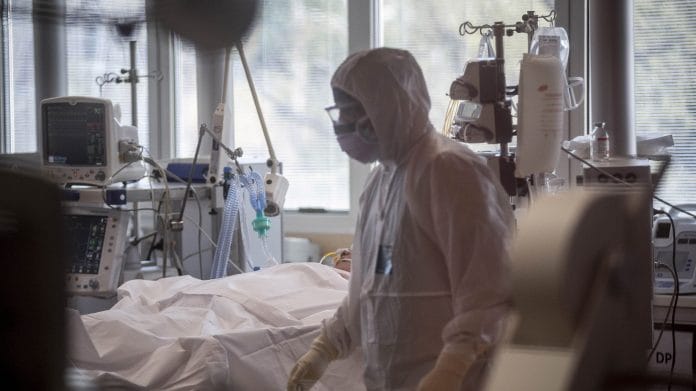New Delhi: In a race to find treatment for Covid-19, scientists across the world have been looking for solutions in every possible place — be it in cutting edge technology that can tweak genes or an ancient tobacco plant that can act as a biofactory of drug molecules.
ThePrint brings you some of the latest global research and developments in the fight against the novel coronavirus.
Genetically modified virus may help fight Covid-19
Scientists have proposed that tweaking a virus that is harmless for humans can potentially offer a new approach for developing vaccines against the SARS-CoV-2.
Researchers at the University of Iowa have suggested that an RNA virus called parainfluenza virus 5 (PIV5), which is believed to cause kennel cough in dogs but is harmless to humans, can be genetically modified to act as a vaccine for humans.
The team of scientists had taken this approach earlier to develop a MERS vaccine. An extra gene was added to the PIV5 so that infected cells would produce the ‘spike’ protein known to be involved in MERS infections. A similar spike protein allows the SARS-CoV-2 to enter living cells in humans.
Laboratory tests in mice have shown that a single dose of the vaccine, given through the nose, triggers immune responses.
Also read: Coronavirus infecting African-Americans at ‘alarming rates’ in some US states: NYT report
Study outlines which Covid-19 patients need urgent ICU care
Scientists have identified the most common clinical characteristics of 109 patients with Covid-19-related pneumonia who died in Wuhan during the early stages of the coronavirus pandemic.
Published in the Annals of the American Thoracic Society, this study can help doctors identify Covid-19 patients who need ICU care more urgently — and thus minimise the number of deaths.
Since multiple organ failure, especially respiratory and heart failure, are seen to have occurred rapidly after hospital admission, an organ protection strategy and ICU care should be provided as soon as possible to patients with severe Covid-19 pneumonia in order to prolong their survival, the researchers said.
Coronavirus vaccine from ancient Australian plant
A team of scientists in Australia’s Queensland University of Technology is making information about some ancient native plants available to researchers across the globe to help find potential drugs for Covid-19.
The team has already given an international consortium called Newcotiana fast-tracked access to the entire chromosome-level genome sequence of Nicotiana benthamiana, an ancient tobacco plant that grows naturally only in Northern and Central Australia.
The genome of this plant has about 60,000 genes, twice the number of an ordinary plant. It is being used for a wide spectrum of vaccines and antibodies, including those for Ebola, the researchers said.
Destroying wildlife habitats may raise risk of future diseases
A new Stanford study has warned that viruses like the SARS-CoV-2, that jump from animals to humans, will likely become more common as people continue to transform wildlife habitats into agricultural land.
The research, published in Landscape Ecology, shows how the loss of tropical forests in Uganda puts people at greater risk of physical interaction with wild primates and the viruses they carry.
In Uganda, decades of migration and the creation of farmlands outside Kibale National Park have led to a high density of people trying to support their families at the edge of forested habitats.
Ordinarily, people avoid wild primates since they are known to be carriers of diseases and many are protected by Uganda’s wildlife authority. However, continued loss of forested habitat means wild primates and humans are increasingly sharing the same spaces and vying for the same food.
Coronavirus infections are seasonal, spread like influenza
Four of the seven coronaviruses known to humans cause common respiratory infections that are seasonal and appear to transmit similarly to influenza, a new study has found.
While it is not possible to determine whether SARS-CoV-2 coronavirus will behave likewise, researchers from the University of Michigan hope that their findings will help investigators prepare for what is to come during the Covid-19 pandemic.
The study, published in the Journal of Infectious Diseases, notes that while coronaviruses have long been recognised, human coronaviruses have historically been detected in mild respiratory illnesses. But when animal coronaviruses spill over to humans they can cause severe illnesses.
Also read: India has allocated over Rs 200 cr for new Covid-19 projects: Science secretary






